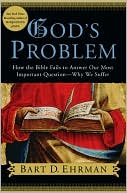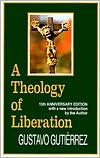 This week we discussed a tough topic: the topic of differing religions.
This week we discussed a tough topic: the topic of differing religions.Many great points were brought up in the group! It's exciting that so many great points were expressed, but sad that my hand could not keep up on the note-taking. As always please correct, add to, or subtract anything that is posted wrongly.
Several stories were told of personal encounters dealing with other religions. I'm going to go out on a limb here and say that an underlying thought was that EXPOSURE to other religions, especially personal experience with persons of differing faiths than our own (and even the lack of those experiences), help inform our personal beliefs on other religions. It was mentioned that "Exposure breaks down barriers." Maybe that relationship/understanding should be explored more. Perhaps that is something that you want to discuss on the comments section, or next week as we decided to continue on this topic next week!
-It was interesting that many said that they were taught to TOLERATE other religions growing up. (I put that in all caps because that word pops back up later).
-Most of us agreed that we were also taught that our religion is right while all other religions are wrong.
-A comment was made that Christianity is more open, because it is not inherited in the same way that Islam and Hinduism is. (we didn't explore the obvious question..."is that a true statement in our lives?")
-The point was made that "TOLERANT" has a loaded connotation. If we tolerate, then it is implied, "I'm right and you're wrong, but I'll allow you to _______(speak, believe, stand in my presence, etc...)
+it was said that there are levels of tolerance depending on the similarities or relationships between the religions in question. (what they hve in common)
-"ACCEPTANCE goes beyond TOLERANCE."
-"how do we get out of the 'we're right and they're wrong' mindset and begin to move from tolerance to acceptance?"
+Is this a goal that we should have?
+how does that work in relation to the Christian idea of conversion? Evangelism?
- One person said, "It all comes back to love your neighbor/love God (greatest commandment)."
+"the idea of acceptance is the idea of being closer to loving the way Christ loved."
+ Because of this understanding, it was also followed up that, "the goal (whatever it is) begins with relationships and [genuine] conversations."
-A good question: "where do [Christians] draw the line?"
+Where is the line? Is there a line that should be drawn?
-"Is there a line on acceptance/exclusivity and pluralism?
- We have this idea of "dualism--> compartmentalizing 'this is Christian/Christ and this [other] is not.]
-What does this idea of dualism do to inform "the line"?
-We agreed that loving others comes first but discussed the relationship between "evangelism and acceptance."
+It was said "that loving someone means loving them holistically (body, mind and soul)."
+how does that inform evangelism?
+another added to the last statement, "that it means building holistic relationships!"
-"What is our concept of evangelism?
+one stated that his concept was, "save them now in this life because I can't promise them eternity."
-Something that was touched on, but not explored was the schism in "kingdom of God" focuses.
+Is it eternal (heaven and hell) or is it earthly/temporal?
-"It all comes back to what YOU believe [individually]. "
+"evangelism is voicing/making your beliefs known.?" (I don't remember if that was stated as a statement or a question.)
-It was pointed out that there seems to be a relationship between "evangelism" and an "agenda".
+has the focus flipped from discipleship in Christianity to Evangelism?
-Finally it was asked, "Are all religions man's attempt to understand/communicate [the divine/God]?"
(this actually was said much earlier in the discussion, but I didn't want it to get lost with not fitting into other blurbs).
The discussion will continue next week. This is a tough topic, and the group did a good job keeping our purpose of respectfulness in the midst of tough discussion!
keep the conversations going!






No comments:
Post a Comment